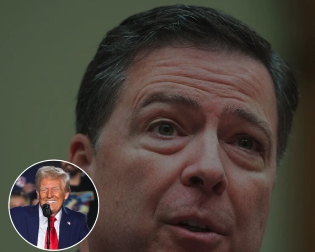Former FBI Director James Comey Faces Federal Court on Perjury and Obstruction Charges
Former FBI Director James Comey appeared in a Virginia federal courtroom on Wednesday morning, marking the latest chapter in a high-profile legal battle that has gripped Washington. The appearance comes several weeks after a federal grand jury indicted Comey on charges of obstruction of justice and making false statements to Congress. During his arraignment, Comey entered a plea of not guilty, according to reports.
The indictment stems from allegations that Comey misled lawmakers during Senate testimony in September 2020, when he reaffirmed his earlier denial—originally made in 2017—that he had authorized any leaks from the FBI to the media related to either the Trump-Russia probe or the Hillary Clinton email investigation. Prosecutors allege that Comey knowingly provided false testimony and obstructed Congress in the process.
Although the arraignment has sparked nationwide attention, senior Justice Department officials on Tuesday dismissed speculation that the FBI planned a public or theatrical arrest. “Mr. Comey has been directed to appear, and I expect that he will,” Deputy Attorney General Todd Blanche told Fox News. “The noise from MSNBC and from retired agents or unnamed anonymous sources about perp walks is just that—it’s just noise.”
According to multiple reports, the FBI had internally debated a “showy” arrest and potential perp walk for Comey. CBS News reported that one agent was suspended after refusing to participate in such a display, calling it “inappropriate and highly unusual” for a white-collar defendant.
Comey was formally charged last month with lying to Congress and obstructing a congressional proceeding, an action that followed public pressure from former President Donald Trump, who urged Attorney General Pam Bondi to investigate his longtime rival. A grand jury indicted Comey on September 25, and he was summoned to appear voluntarily for arraignment on October 9 in the Eastern District of Virginia.
However, sources told CBS News that on the same day the summons was issued, FBI leadership discussed forcibly bringing Comey in rather than allowing him to appear voluntarily. One source described the proposed operation as involving “large, beefy” agents outfitted in full tactical gear, including Kevlar vests and outerwear emblazoned with the FBI logo.
When a supervisory special agent in the bureau’s violent crimes division refused to assemble the arrest team, citing ethical concerns, he was reportedly suspended for insubordination. CBS further reported that the bureau began assembling a second team to carry out the arrest before Comey’s scheduled appearance, though additional supervisors have since refused to participate.
The indictment centers on Comey’s 2020 Senate testimony, in which he allegedly lied about whether he had authorized FBI personnel to serve as anonymous sources for the media in stories concerning Hillary Clinton. The document does not identify which individuals were allegedly authorized or the specific leaks in question. Comey has repeatedly denied any wrongdoing.
Behind the scenes, the case has stirred significant upheaval within the U.S. Attorney’s Office for the Eastern District of Virginia. Erik Siebert, the lead prosecutor overseeing the investigation, resigned two weeks before the indictment was issued. His replacement, Lindsey Halligan—a former personal attorney to Trump—was appointed shortly afterward and sought the indictment within a week of taking over.
A Justice Department source told CBS News that some prosecutors within the office circulated an internal memo opposing the decision to charge Comey. Two senior prosecutors in the district were also terminated in recent weeks, further highlighting internal divisions over the case.
As the legal proceedings unfold, debate continues to swirl around both the charges themselves and the FBI’s handling of the situation. Critics have accused the bureau of politicizing the process, while others argue that accountability for former officials is long overdue. Regardless of the outcome, the Comey case is shaping up to be one of the most politically charged prosecutions in recent memory—one that could have lasting implications for the Justice Department and for public trust in federal law enforcement.

